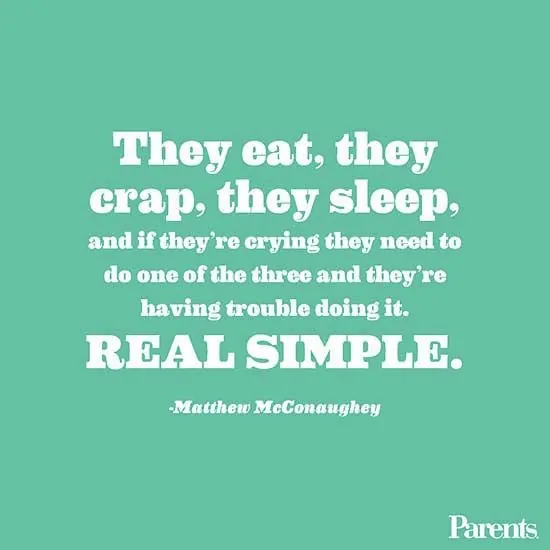This post may contain affiliate links. Read my disclosure policy here.
Jenny, 5 Minutes for Mom contributor, shares a look into a new book titled, “Eat, Sleep, Poop: A Common Sense Guide to Your Baby’s First Year”. We were compensated to write this post, however all opinions remain those of the writer.
Sounds simple, right? However, in reality, raising a child is much more difficult than it seems!
I remember the excitement I felt when my daughter reached an age where she was able to eat table foods. Finally, I would be able to stop making separate meals and instead she would be able to eat what the rest of the family was having!
Imagine my surprise when she began to refuse everything. My good eater had suddenly become resistant and picky. Always low in the growth chart percentiles, her weight was still low. I began to worry that she was not receiving the necessary, well-balanced nutrition that is so important for healthy growth and development.
I began to keep a food journal for her, but my limited knowledge left me in the dark when it came to understanding whether she was receiving all of the nutrition she needed, such as enough DHA (an omega-3 fatty acid). DHA is a key ingredient for brain development that is vitally important during a child’d first three years of life since that is when 84% of their brain growth occurs!
When I learned that, on average, toddlers only get about 25% of the amount of DHA recommended from their daily diet, I became even more concerned about my daughter’s eating habits.
Thankfully, Dr. Scott Cohen, a pediatrician and author of the bestseller: Eat, Sleep, Poop: A Common Sense Guide to Your Baby’s First Year is building awareness about the DHA nutrition gap and offering parents advice on how they can maximize healthy brain development.
Dr. Cohen and the maker of Enfagrow® have partnered to offer:
- A Toddler Nutrition Checklist – what are the 5 things that every toddler needs in their diet?
- What is DHA? It’s a type of Omega-3 fatty acid but what does that mean?
- How does DHA affect your child’s brain development?
- Simple solutions for filling nutrition gaps
Having advice from a pediatrician who was named Pediatrician of the year, co-founded Beverly Hills Pediatrics, received the Physician Recognition Award in Pediatrics for 2005 and 2008, and has received numerous other accolades allows me to feel confident about my resources and the information I am receiving in regards to my daughter’s health.
Dr. Cohen taught me some valuable lessons about toddler health. First, I learned the three categories that I should focus on when feeding my daughter:
1. DHA (for brain development)
2. Calcium (for bones, muscles, and teeth)
3. Protein
I also was reminded that when feeding our toddlers it is best to focus on teaching healthy eating habits rather than the volume of food they are consuming. The habits they form now will extend throughout their lives. In my fear for my daughter’s health I was tempted to feed her anything, or to allow her to eat anywhere. However, those techniques won’t foster healthy eating habits.
I need to focus more on providing a variety of options for my daughter and on teaching her how to make healthy choices. This isn’t always easy with a toddler, but Dr. Cohen’s book is designed to provided help!
Dr. Cohen Answers Our Questions on Video
You can learn more about Dr. Cohen and his book on his website.
Disclosure: This is a sponsored post.
Written by 5 Minutes for Mom contributor, Jenny Nanninga. Jenny blogs at livingthesweetstuff.wordpress.com about her home, family (husband and sweet baby girl), being a mom, crafting, cooking, her faith in God, and more.











Leave a Comment